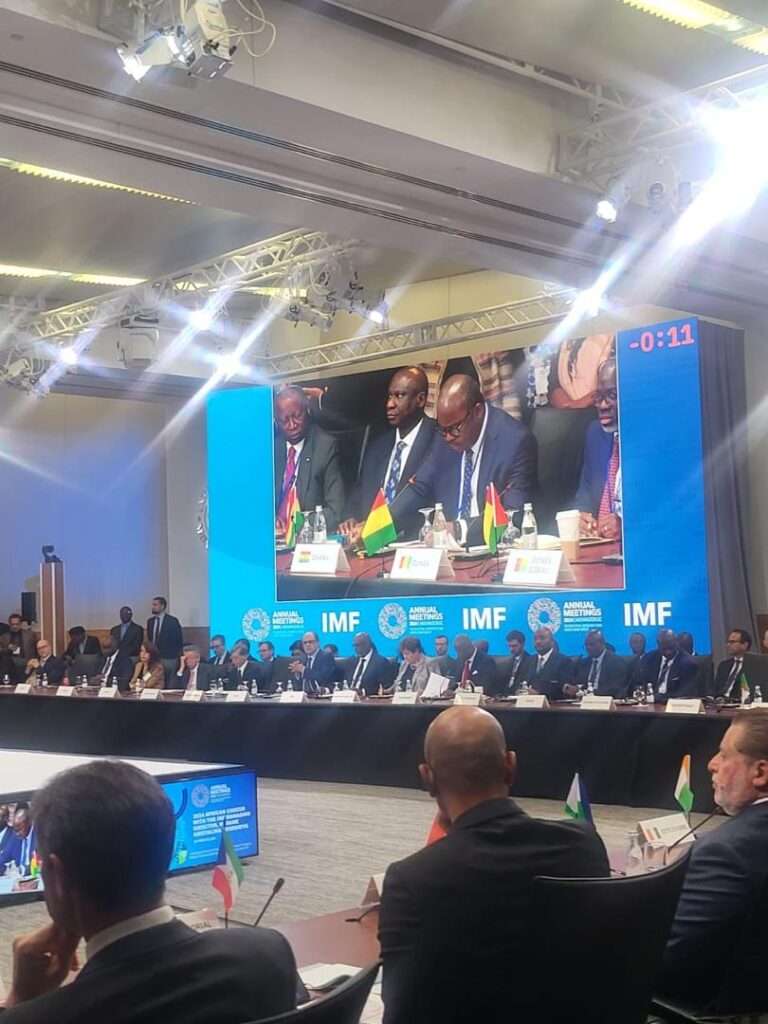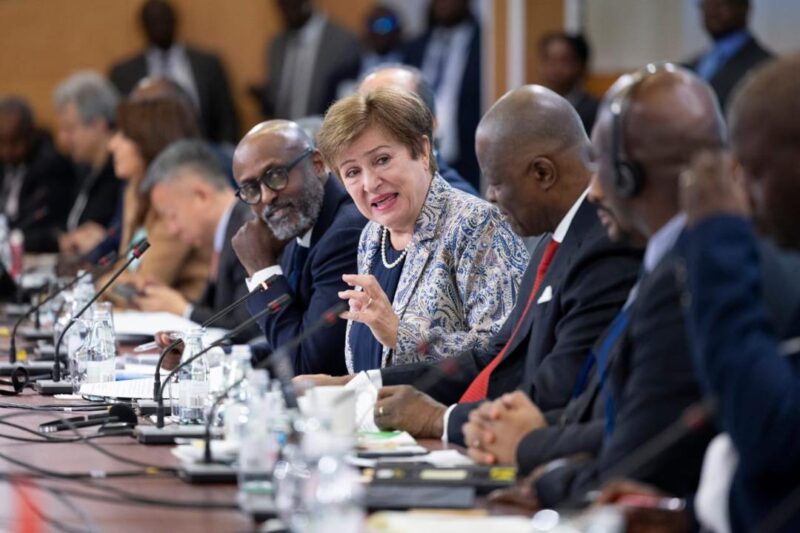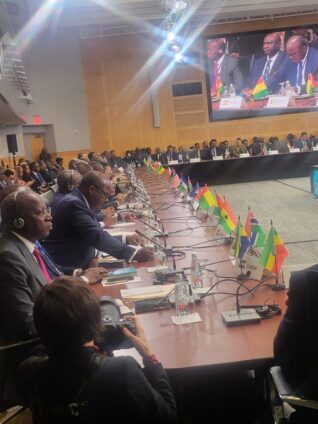The Governor of the Bank of Ghana, Dr. Ernest Addison, is urging the International Monetary Fund to continue to lead in debt restructuring and relief efforts for heavily indebted countries such as Ghana.
In this respect, he wants the Global Sovereign Debt Roundtable (GSDR) to ensure swift, fair, and effective debt resolution under or outside the G20 Common Framework, focusing on providing timely debt relief for the most vulnerable countries.
Speaking at the 2024 Africa Caucus Meeting with the Managing Director of the International Monetary Fund, Kristalina Georgieva, in Washington, DC, Dr, Addison also called for greater private sector involvement in the Common Framework to ensure Comparability of Treatment and faster progress on debt resolution initiatives.
“The Fund, through the GSDR, should also explore innovative financing solutions—such as blended finance, and debt-for-climate swaps via enhanced RSF—to address both the continent’s debt vulnerabilities and climate change risks, he added.

Dr. Addison also called for a collaborative approach to address Africa’s fiscal challenges, which he described as crucial.
“We urge the IMF and World Bank to coordinate their support to develop resilient fiscal policies, considering Africa’s diverse needs. Programmes should account for regional specificities to ensure sustainable and impactful reforms that do not disproportionately affect vulnerable populations. The IMF should leverage its catalytic role and convening power to deepen dialogue with regional MDBs [Multilateral Development Banks] for additional concessional finance and grants, aiding debt restructuring for members at high risk of debt distress”.
He also wants the IMF’s support to remain flexible, adapting to global conditions and country-specific needs, while ensuring sufficient resources.

In this context, the BoG Governor said maintaining the high concessionality of the Poverty Reduction and Growth Trust is critical while ensuring adequate financing through all possible options, such as gold sales.
“In this regard, it is crucial to highlight that the timing for the resumption of charging interest rates on PRGT funds (tiered interest rate structure) is inappropriate as most PRGT-eligible countries are still facing significant challenges. Relatedly, the IMF’s charges and the surcharges policy should avoid adding financial burdens on countries facing fiscal challenges”, he explained.
“With the expiry of the Food Shock Window and rising food insecurity, especially in Africa, timely emergency financing through CCRT resources and program augmentations is essential. Intensified fundraising efforts under the second phase of resource mobilisation are paramount”, he added.
Latest Stories
-
King Charles to lead commemorations to mark 80th anniversary of VJ Day
52 minutes -
Even in disagreement, you can’t quarrel with him – Kyei-Mensah-Bonsu pays tribute to Dr Omane Boamah
1 hour -
UK gov’t turns to TikTokers to advise on cosmetic surgery abroad
1 hour -
Bolsonaro’s son praises Trump’s tariff hike on Brazil
2 hours -
Sex shouldn’t be painful. Here’s what to do if it is
2 hours -
What you’re not hearing in sex ed about college hookups
2 hours -
African Union urges adoption of world map showing continent’s true size
2 hours -
New blood pressure guidelines recommend an earlier start to treatment and skipping alcohol
2 hours -
Fast walking is a key to longevity, research shows
3 hours -
US senators call for Meta probe after Reuters report on its AI policies
3 hours -
US charges two in $275m water vending machine Ponzi case
3 hours -
US judge blocks Trump religious exemption to birth control coverage
3 hours -
US appeals court lets Trump cut billions in foreign aid
3 hours -
US court reinstates $81m award against Boeing in trade secrets case
4 hours -
Final salute as Ghana bids farewell to 8 fallen patriots in solemn state funeral
4 hours

